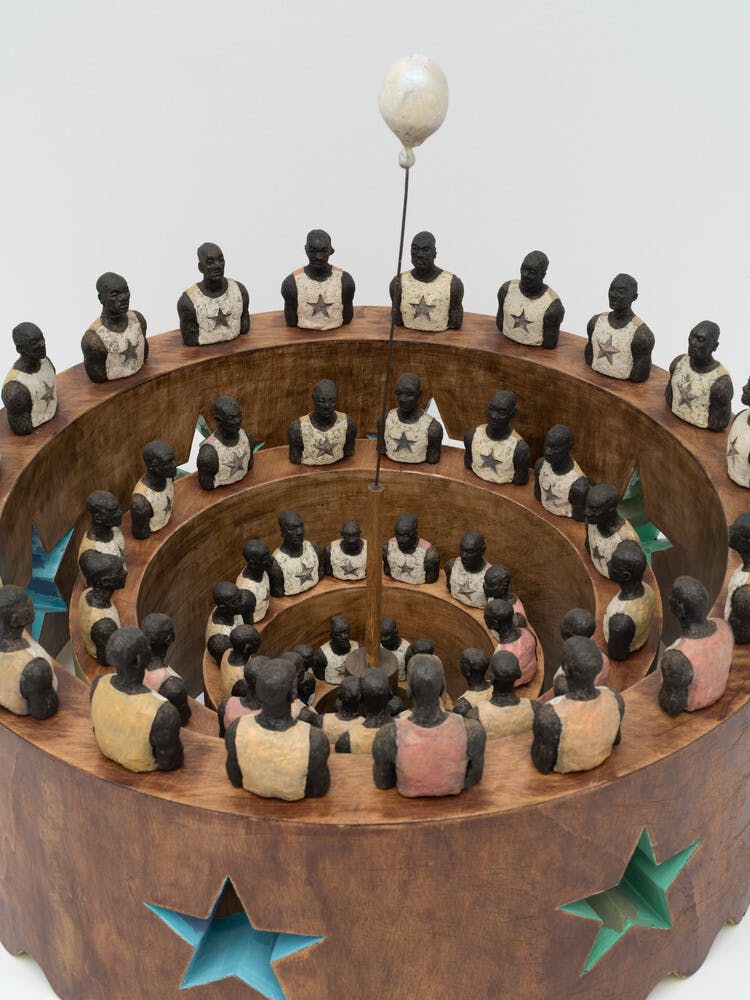Huddle, 2014
- Artist
Derek Fordjour
- Title
Huddle
- Date
2014
- Medium
Wood, terra cotta, glass, acrylic, and vinyl paint
- Dimensions
20 x 28 x 28 inches
- Credit line
The Studio Museum in Harlem; bequest of Peggy Cooper Cafritz (1947–2018), Washington, D.C. collector, educator, and activist
- Object Number
2018.40.85
Huddle, alongside Derek Fordjour’s greater practice, explores power dynamics through athletic metaphors. Comprising fifty-six figures lined on concentric, motorized, rotating bases, Huddle questions the presence of agency for Black people. The tiers create an arena reminiscent of the Colosseum, foregrounding analogies of voyeurism and vulnerability in both sports and the Black lived experience. Each tier of players rotates independently, creating moments of both randomness and order. But the athletes cannot experience a physical or psychological progress to a higher tier—or generation. Thus, Huddle illuminates the relationship between lineage and social change, and the difficulty of “moving up” as a multigenerational community.
Huddle, 2014
- Artist
Derek Fordjour
- Title
Huddle
- Date
2014
- Medium
Wood, terra cotta, glass, acrylic, and vinyl paint
- Dimensions
20 x 28 x 28 inches
- Credit line
The Studio Museum in Harlem; bequest of Peggy Cooper Cafritz (1947–2018), Washington, D.C. collector, educator, and activist
- Object Number
2018.40.85
Huddle, alongside Derek Fordjour’s greater practice, explores power dynamics through athletic metaphors. Comprising fifty-six figures lined on concentric, motorized, rotating bases, Huddle questions the presence of agency for Black people. The tiers create an arena reminiscent of the Colosseum, foregrounding analogies of voyeurism and vulnerability in both sports and the Black lived experience. Each tier of players rotates independently, creating moments of both randomness and order. But the athletes cannot experience a physical or psychological progress to a higher tier—or generation. Thus, Huddle illuminates the relationship between lineage and social change, and the difficulty of “moving up” as a multigenerational community.



